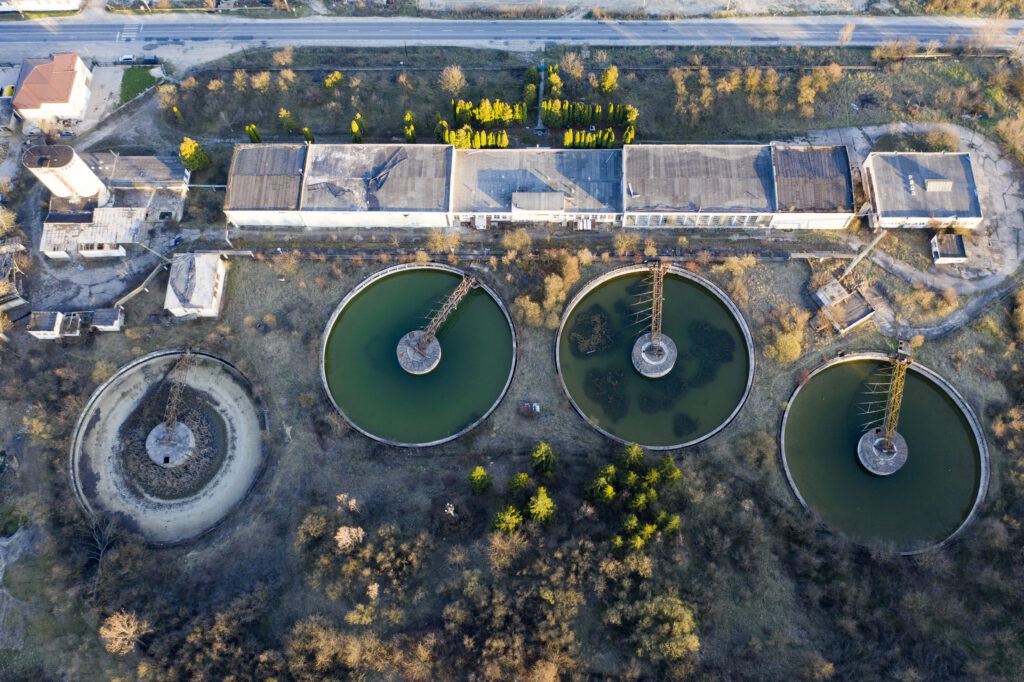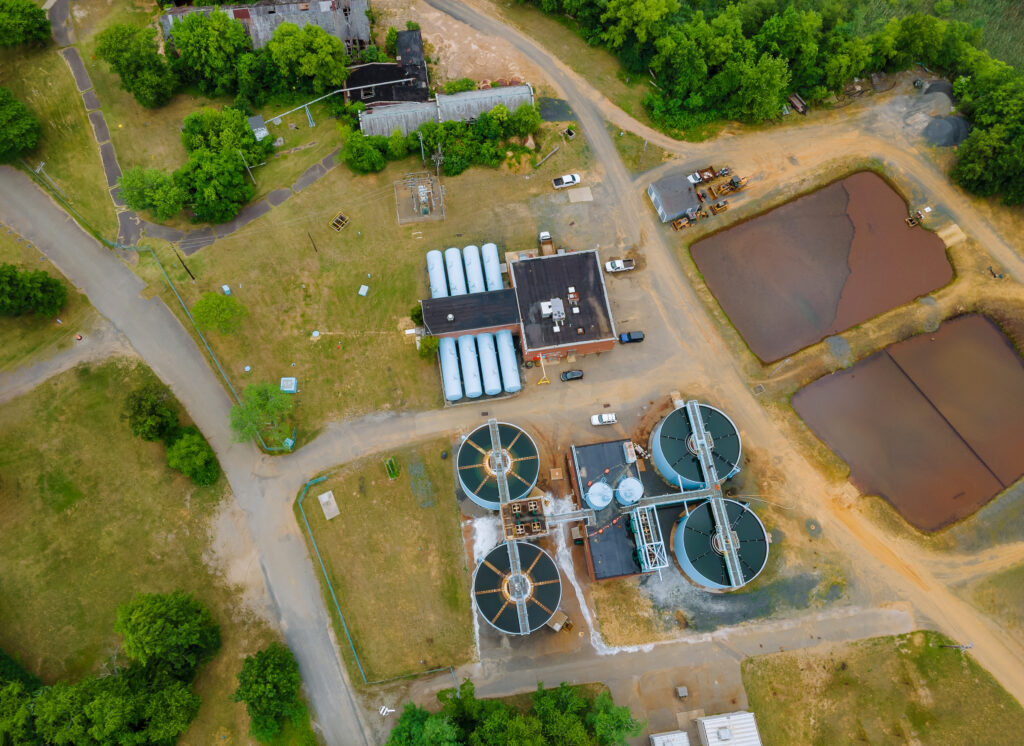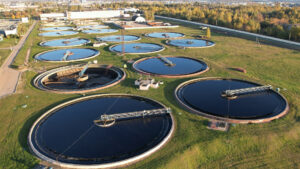In the rapidly industrializing economy of India, effective wastewater management has become a vital necessity. With increasing environmental legislations, resource scarcity, and corporate sustainability mandates, industries are compelled to adopt modern wastewater treatment systems. Partnering with a reliable sewage treatment plant installation company has thus become a strategic decision for businesses seeking compliance, sustainability, and cost efficiency. As pollution control norms tighten and water reuse technologies advance, industrial sectors across India are realizing the multifaceted benefits of installing sewage treatment plants (STPs).
Understanding Sewage Treatment in Industrial Context
The Industrial Water Challenge
India’s water crisis is not a distant possibility—it’s a pressing reality. According to NITI Aayog, nearly 600 million Indians face severe water stress, and many major cities—like Bengaluru, Delhi, and Chennai—are nearing “Day Zero” situations. Industries, while crucial for economic growth, contribute significantly to wastewater generation. Therefore, treating and recycling wastewater is no longer optional but essential for long-term business continuity.
What Are Sewage Treatment Solutions?
Sewage treatment solutions are specialized systems designed to treat and recycle domestic and industrial effluent. They remove contaminants, neutralize harmful compounds, and convert wastewater into usable or safely dischargeable water. For industries, installing these solutions helps maintain environmental compliance while significantly reducing dependence on freshwater resources.
Key Benefits of Installing a Sewage Treatment Plant
1. Ensures Regulatory Compliance and Legal Adherence
Indian industries must comply with Central Pollution Control Board (CPCB) and State Pollution Control Board (SPCB) guidelines for effluent discharge. By installing a robust treatment system, a sewage treatment plant installation company helps industries meet statutory discharge limits, avoiding penalties and license suspensions. Compliance with environmental laws like the Environment Protection Act (1986) and Water (Prevention and Control of Pollution) Act (1974) builds corporate trust and brand value.
2. Reduces Environmental Pollution
A well-designed sewage treatment system prevents untreated wastewater from polluting rivers, lakes, and groundwater sources. Studies show that India treats only about 28% of the 72,368 million litres of sewage produced daily, meaning pollution from untreated discharge remains a critical issue. By processing wastewater before discharge, industries can significantly curb contamination levels and support India’s broader sustainability goals.
3. Promotes Water Recycling and Resource Conservation
One of the most impactful advantages is water reuse. Recycled wastewater can be used for:
-
Cooling towers
-
Boiler feed operations
-
Industrial cleaning
-
Landscaping and horticulture
By integrating sewage treatment solutions at facility level, industries can save millions of litres of freshwater annually—resulting in both environmental and financial benefits.
4. Enhances Corporate Sustainability Practices
Sustainable industrial operations are now a key benchmark for ESG (Environmental, Social, and Governance) performance. A sewage treatment plant installation company enables businesses to align operations with CSR mandates and international green frameworks like ISO 14001 and LEED. Reusing treated water not only demonstrates ecological responsibility but also strengthens the company’s public image as an environmentally conscious enterprise.
Technological Advantages Driving India’s STP Adoption

Integration of Advanced Treatment Technologies
Recent developments, according to IMARC Group’s 2025 data, reveal that advanced treatment systems—such as Membrane Bioreactor (MBR), Moving Bed Biofilm Reactor (MBBR), and Reverse Osmosis (RO)—are transforming wastewater management. These high-performance technologies allow for efficient removal of contaminants, meeting even the most stringent discharge norms.
| Technology | Key Benefit | Typical Industrial Application |
|---|---|---|
| MBBR | Compact footprint and high efficiency | Pharmaceutical, textile |
| MBR | Produces high-quality reusable water | Food processing, beverages |
| RO | Suitable for zero-liquid-discharge operations | Power and chemical plants |
Smart and IoT-Enabled Systems
Modern STPs designed by leading Indian manufacturers incorporate IoT-based analytics for real-time monitoring. Parameters like pH, BOD, COD, and TDS can be monitored remotely, allowing predictive maintenance and enhanced performance—optimizing energy and operational efficiency.
Economic Value of Industrial Sewage Treatment
Cost Efficiency and Reduced Operational Costs
Efficient STPs minimize long-term expenses through water reuse, reduced borewell dependency, and lower environmental compliance costs. Industries that recycle treated water save substantially by cutting down on raw water purchases and discharge fees.
Energy Recovery Opportunities
Many sewage treatment systems enable biogas generation through anaerobic digestion. This byproduct can be utilized to provide renewable energy that supports daily plant operations, leading to reduced power consumption and carbon footprint.
Return on Investment (ROI)
While initial installation costs may appear substantial, long-term returns are significant due to recycling savings, extended equipment life, and reduced downtime caused by water shortages.
Environmental and Social Impacts

Contribution to Groundwater Protection
Untreated effluent often leads to groundwater contamination. Advanced STPs by a competent sewage treatment plant installation company protect groundwater aquifers by ensuring harmful substances are eliminated before discharge.
Public Health and Safety
Treated effluent prevents the spread of water-borne diseases and limits exposure to harmful pathogens, benefitting both industrial workers and surrounding communities.
Climate Impact Reduction
By lowering greenhouse gas emissions and promoting efficient resource management, STPs contribute directly to India’s climate commitments under the Paris Agreement.
Indian Industry Adoption and Market Trends
The wastewater treatment market in India is expanding rapidly, projected to grow at a CAGR of 7.6% to reach USD 18.63 billion by 2033. Key growth drivers include government mandates under the Namami Gange Mission, AMRUT, and Smart City initiatives. Industrial zones in Gujarat, Maharashtra, and Tamil Nadu are witnessing large-scale STP deployments, enabling sustainable manufacturing.
Sector-Specific Benefits
| Industry | Key Benefit of STP Installation | Resulting Impact |
|---|---|---|
| Textiles | Reuse of wash and dye water | Reduced freshwater use |
| Food Processing | Odor and waste control | Improved hygiene, compliance |
| Pharmaceuticals | Neutralization of chemical waste | Cleaner discharge |
| Power Generation | Water recycling for cooling | Enhanced operational efficiency |
| Real Estate & SEZs | Reclaimed water for irrigation | Better green ratings |
Choosing the Right Sewage Treatment Plant Installation Company
Factors to Consider
When selecting a partner, industries should evaluate:
-
Proven track record and project portfolio
-
Compliance expertise (CPCB norms, ISO certifications)
-
Availability of end-to-end services (design, installation, maintenance)
-
Technology capabilities (MBBR, SBR, MBR systems)
-
After-sales support and AMCs
A reputable company ensures high-efficiency performance and long-term technology reliability.
Importance of Local Expertise
In India, local environmental conditions, varying wastewater characteristics, and regulatory requirements demand localized design. A domestic sewage treatment plant installation company understands these needs and can customize systems accordingly to ensure seamless compliance and operational efficiency.
Looking Ahead: Future of Sewage Treatment in India
Policy and Regulatory Trends
The Government of India’s focus on water reuse and industrial zero-liquid-discharge (ZLD) mandates will drive stronger policy implementation. Industries investing in advanced sewage treatment solutions today will have a decisive advantage in the coming decade.
Technological Evolution
Artificial intelligence, smart sensors, and automated process control will make future STPs more autonomous, efficient, and data-driven—helping industries achieve predictive control over water treatment cycles.
Conclusion
Installing a sewage treatment plant is no longer just about environmental compliance—it’s an imperative for sustainable business growth. Partnering with an experienced sewage treatment plant installation company helps industries achieve cost savings, secure regulatory adherence, and strengthen environmental stewardship. Beyond improving operational resilience, such measures advance India’s national sustainability vision—ensuring that industrial growth and ecological health progress hand in hand.
Frequently Asked Questions (FAQs)
1. Why should industries install a sewage treatment plant?
Industries must install STPs to meet environmental compliance mandates, reduce water consumption through reuse, and protect surrounding ecosystems. It also helps maintain a sustainable brand image and avoid legal penalties.
2. How do sewage treatment solutions help in saving costs?
By recycling treated water for non-potable uses, industries reduce dependence on municipal or borewell water. The savings on water procurement and wastewater disposal substantially offset initial setup costs.
3. What is the typical life span of an industrial sewage treatment plant?
With regular maintenance and proper operation, an industrial STP can last 15–25 years. Regular servicing by a certified sewage treatment plant installation company extends its performance and life expectancy.
4. Are there government incentives for installing STPs in India?
Yes, several government schemes and local industrial policies promote wastewater recycling infrastructure through subsidies, tax deductions, or compliance recognition under AMRUT and Smart Cities programs.
5. Can treated wastewater be reused in industrial processes?
Yes, treated water can be reused for applications like cooling, floor washing, and landscaping. Proper tertiary treatment ensures the safety and suitability of recycled water for such operations.



